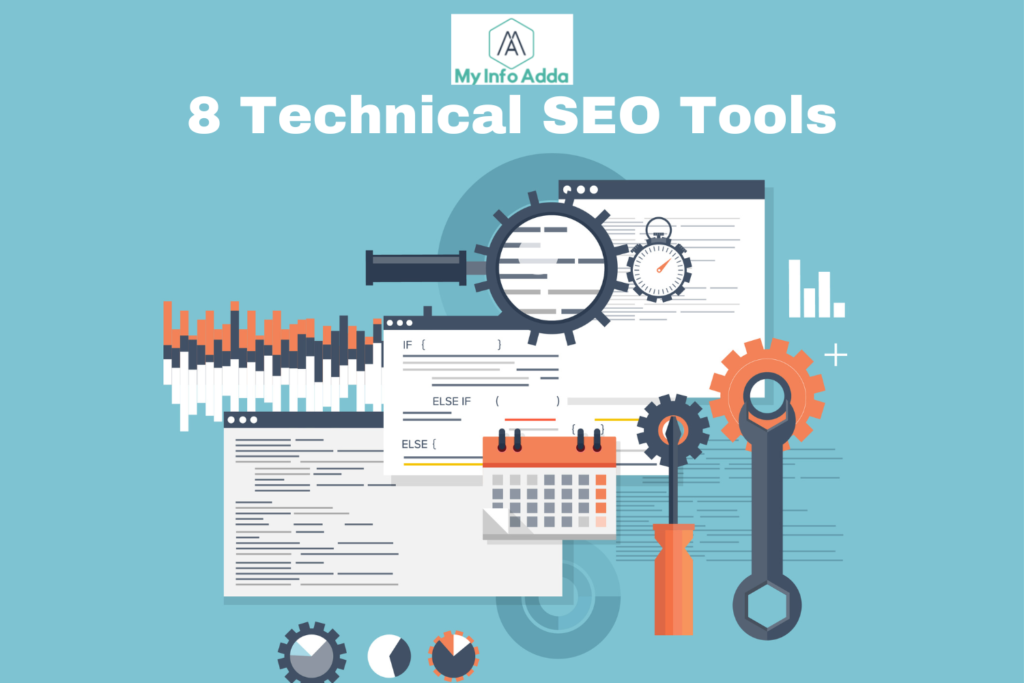When it comes to optimizing a website, technical SEO tools are a critical foundation that often goes unnoticed by many. They cover all the on-page and server-side aspects that make a site accessible, fast, and crawlable for search engines, directly impacting rankings and user experience. To simplify the optimization process, there are a variety of technical SEO tools that help website owners and marketers refine and improve their site’s performance. Here, we explore the Top 8 Technical SEO Tools to Boost Your Website’s Performance that can be game-changers for your SEO strategy.
1. Google Search Console
A must-have technical SEO tool for any website owner, Google Search Console provides insights into how Google indexes and displays your website in search results. It highlights issues such as crawl errors, security issues, and mobile usability problems. With regular monitoring, you can maintain a site that aligns with Google’s best practices, enhancing your rankings.
2. Google Webmaster Tools
Google Webmaster Tools is an essential suite that works alongside Google Search Console to provide a broader overview of your site’s visibility and performance in search results. With features like site and URL submission, site monitoring, and diagnostic reports on indexing issues, this technical SEO tool helps you understand and resolve various technical SEO issues to keep your site in peak condition.
3. Screaming Frog SEO Spider
The Screaming Frog SEO Spider is a desktop program that crawls websites, extracting data to help with technical audits. This tool offers in-depth analysis, including broken links, duplicate content, and XML sitemaps. It’s especially useful for large websites that require comprehensive monitoring through a robust technical SEO tool.
4. Ahrefs Site Audit
Ahrefs is popular for its backlink analysis, but its Site Audit tool also offers robust technical SEO capabilities. It checks for over 100 predefined issues like slow-loading pages, broken images, and missing metadata, making it a powerful tool to ensure your website is technically sound.
5. SEMrush Site Audit
SEMrush provides a versatile Site Audit feature that analyzes everything from HTTPS implementation to structured data and AMP errors. This technical SEO tools breaks down complex aspects, allowing you to fix issues that could harm your rankings.
6. GTmetrix
A fast-loading website is crucial for user experience and SEO rankings. GTmetrix measures page load time, total page size, and the number of requests. It also provides actionable recommendations, from image optimization to caching techniques, to speed up your site—making it an invaluable technical SEO tool for enhancing website performance.
7. PageSpeed Insights
PageSpeed Insights by Google assesses your site’s mobile and desktop speed performance. It provides a score along with improvement suggestions, especially for core web vitals like First Contentful Paint (FCP) and Cumulative Layout Shift (CLS), which are crucial for SEO rankings. For anyone focused on technical SEO tools, this is a must-have for analyzing and improving site speed.
8. Sitebulb
Sitebulb is another powerful crawling tool that visualizes data to highlight technical SEO issues. This technical SEO tool offers a clear picture of what needs to be fixed, from thin content to internal link structures, helping you prioritize technical SEO improvements effectively.
Why Use Technical SEO Tools?
Technical SEO is the backbone of a website’s search visibility. Without optimizing the technical aspects of your site, even the best content and backlink strategies may not reach their full potential. Here are some key reasons why using technical SEO tools is essential:
- Enhanced Crawling and Indexing: Technical SEO tools help search engines understand and navigate your site effectively, ensuring your pages are indexed correctly and appear in relevant search results.
- Improved User Experience: Many technical SEO tools focus on site speed, mobile usability, and other elements that enhance the user experience. A website that loads fast and works well on all devices is more likely to retain users and reduce bounce rates.
- Identify and Fix Errors Quickly: Technical SEO tools can uncover issues like broken links, duplicate content, and slow-loading pages. By identifying these problems early, you can prevent search engine penalties and improve site performance.
- Data-Driven Decisions: These tools provide actionable insights, enabling you to make data-driven improvements that lead to better search rankings and increased traffic over time.
- Competitor Analysis: Some technical SEO tools allow you to benchmark your site against competitors, giving you insights into areas where your site can improve to stay competitive.
FAQs About Technical SEO Tools
Q1: What are technical SEO tools?
Technical SEO tools are software applications or platforms that analyze and help improve the technical aspects of a website, such as site speed, indexing, crawling, and usability. They ensure that your site is optimized for search engines to crawl and rank effectively.
Q2: How often should I use technical SEO tools to audit my website?
It’s generally recommended to use technical SEO tools monthly or quarterly, depending on the size and complexity of your website. Regular audits help you stay on top of any emerging issues and maintain optimal site performance.
Q3: Are technical SEO tools only necessary for large websites?
No, even smaller websites benefit from technical SEO tools. These tools ensure that fundamental aspects, like mobile-friendliness, site speed, and error-free pages, are optimized, which is essential for ranking well in search engines.
Q4: Can technical SEO tools improve my search rankings directly?
While technical SEO tools don’t directly boost rankings, they identify and help fix issues that might be hindering your site’s visibility. By resolving these issues, you create a solid foundation for better search performance.
Q5: Do I need to use all these technical SEO tools?
Not necessarily. Choose tools that address your website’s unique needs. For example, if site speed is a concern, GTmetrix or PageSpeed Insights might be most relevant, while larger sites may benefit from crawlers like Screaming Frog or Sitebulb.
By leveraging these Top 8 Technical SEO Tools to Boost Your Website’s Performance, you can create a site that search engines favor and users enjoy, which ultimately leads to better rankings and increased traffic. Regularly auditing your site with these technical SEO tools ensures a smooth and search-friendly website experience, enhancing both your visibility and credibility online.
If you’re new to SEO and want to understand its fundamentals, check out our blog on What is SEO and How It Works. This guide provides an in-depth look at SEO basics and how they come together to drive traffic and growth for your website.




